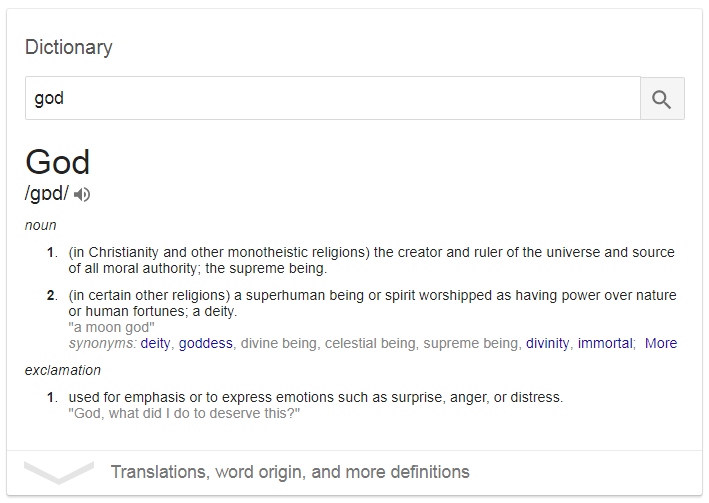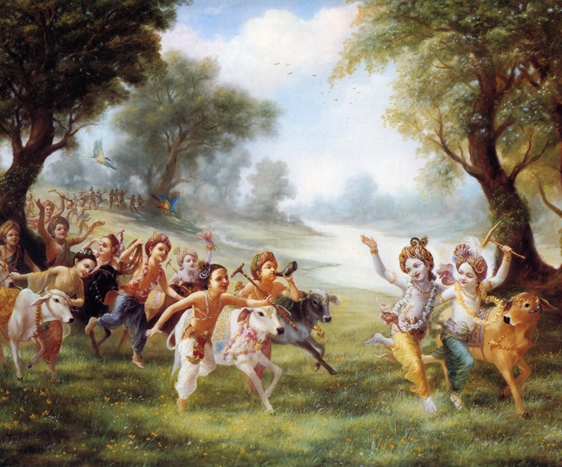The question whether God is partial is not new. You may find a good number of opinions and explanations pertaining to it. People not inclined to search out the truth go with their own understanding and either thank or blame God for good or bad in their lives. There are also those who believe in working hard without bringing God in the picture, and then we have those, the top losers, who do not know anything about God. They are atheists and this question does not make any sense to them.
Before discussing whether God is partial or not, let us first define the meaning of God. Google shows the following two definitions:

Not that Google is the authority on defining God but what we see here is, in either case, the God is understood to be the supreme person as without being a person He cannot be creating or ruling anything nor can He be hearing our prayers. So God is a person is already established and we will not get into it. If you are interested, you may like to watch this beautiful short video showing how God is indeed a person.
The most intriguing part of the debate on whether God is partial or not is that both those who do not believe God is partial and those who believe God is partial quote the same Bhagavad Gita verse to prove their point.
samo ’ham sarva-bhuteshu na me dveṣyo ’sti na priyah
ye bhajanti tu maṁ bhaktya mayi te teshu chapyaham
Translation: I envy no one, nor am I partial to anyone. I am equal to all. But whoever renders service unto Me in devotion is a friend, is in Me, and I am also a friend to him. (B.G 9.29)
Take a careful look at the verse. First Lord Krishna says He is not partial to anyone and is equal to all. Then He adds that whoever renders devotional service unto Him is His friend. What does this imply? His first statement is emphatic and unambiguous. He envies no one, He is partial to no one, and He is equal to all. But He leaves His next statement deliberately interpretable.
One interpretation is, He is partial to those who render devotional service unto Him as He calls them His friends and says He is also friend to them. In that case the question could be, what about His statement somewhere else saying He is suhrdam sarva bhutanam (B.G. 5.29), the benefactor and well-wisher of all living entities? In other words he says He is friend to all. This in turn implies that God is partial to all; in other words He is impartial.

However, a very strong argument suggesting God is partial is that this particular verse appears in what is called Raja-guhya yoga, or the chapter describing the most confidential knowledge meant only for and understood only by His devotees.
Considering this, the question takes a little turn. Is God partial to His devotees? Srila Prabhupada has the answer:
“The Lord claims that every living entity – in whatever form – is His son, and so He provides everyone with a generous supply of the necessities of life. He is just like a cloud which pours rain all over, regardless of whether it falls on rock or land or water.”
So it is not necessarily the Lord alone who chooses to be partial to a certain living entity although being the supreme master He can do so if He wishes to. What happens is, when a person renders devotional service unto the Lord, the Lord reciprocates with Him. In other words, it is not partiality as it may seem to mean; it is but Lord’s reciprocation. Srila Prabhupada is referring of such devotees.
“But for His devotees, He gives specific attention. Such devotees are mentioned here: they are always in Krishna consciousness, and therefore they are always transcendentally situated in Krishna. The very phrase “Krishna consciousness” suggests that those who are in such consciousness are living transcendentalists, situated in Him. The Lord says here distinctly, mayi te: “They are in Me.” Naturally, as a result, the Lord is also in them. This is reciprocal.”
So it is reciprocal; not partiality. Srila Prabhupada adds the following paragraph which qualifies his view that it indeed is reciprocal.
“This also explains the words ye yatha mam prapadyante tams tathaiva bhajamyaham: ‘Whoever surrenders unto Me, proportionately I take care of him.’ This transcendental reciprocation exists because both the Lord and the devotee are conscious. When a diamond is set in a golden ring, it looks very nice. The gold is glorified, and at the same time the diamond is glorified. The Lord and the living entity eternally glitter, and when a living entity becomes inclined to the service of the Supreme Lord he looks like gold. The Lord is a diamond, and so this combination is very nice. Living entities in a pure state are called devotees.”
And yet, it is not mandatory for God to be impartial. He is fully independent and can use His free will to do anything. If He wants He can be partial, even to those who are not His devotees and do not necessarily qualify for such favors. It is called ahaituki kripa, or causeless mercy of the Lord.
“The Lord is here stated to be partial to the devotees. This is the manifestation of the Lord’s special mercy to the devotees. The Lord’s reciprocation should not be considered to be under the law of karma. It belongs to the transcendental situation in which the Lord and His devotees function. Devotional service to the Lord is not an activity of this material world; it is part of the spiritual world, where eternity, bliss and knowledge predominate. (B.G 9.29 purport)
In conclusion, since God can do anything and everything, although He is certainly impartial and equal to all, He can also be partial if He wants to be. He is not God if He cannot do something. He is not whimsical but at the same time He is not bound by any law. He chooses to be bound by the love of His devotees and He invites all of us to be His devotees because He loves all living entities. It is up to the devotees to chose what type of relationship they want with God.
Systematic devotional service under the guidance of a bona fide spiritual master helps one realize one’s eternal loving relationship with the Lord. It is explained that in pure state of consciousness all living entities are His devotees. In that sense also He is equal to all and perfectly reciprocates with every devotee according to his or her love for Him. He does not impose on anyone but encourages everyone to be His devotee knowing well that the pleasure derived by His devotees surpasses all other pleasures of this world.



























